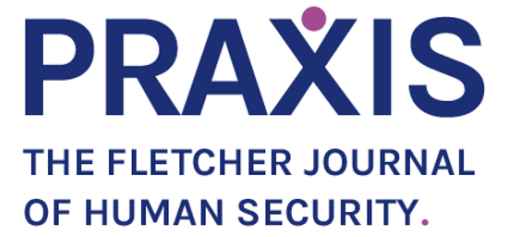You Can’t Want Change More Than We Do
You Can’t Want Change More Than We Do
by Sabina C Robillard
He told me, “You can’t want change more than we do.”
His name was Louino ‘Robi’ Robillard, and he was a community organizer in Cité Soleil, one of Haiti’s most marginalized neighborhoods. We had just come from a community meeting and I was bursting with ideas about how they could accomplish their goals more efficiently. He told me, patiently, that I needed to slow down, sit down, and listen.
At the time, I was a young aid worker, responsible for community mobilization with the International Organization for Migration during the 2010 Haiti earthquake response. I had been coming to Haiti for many years, spoke Haitian Creole, and had been living with a friend in the rural outskirts of Cité Soleil, though it was against security regulations. In my spare time, I ended up connecting with a young social movement in Cite Soleil called Konbit Solèy Leve, which had formed to address structural and gang violence in the neighborhoods. Frustrating with the inequities of the international aid community in the earthquake response, I eventually would quit my job with IOM to support the movement full-time. But I learned that I couldn’t leave the power dynamics of race, nationality, and privilege behind in the United Nation’s Logistics Base – they followed me wherever I went, and I needed to learn quickly how to navigate them in a place where the hierarchies of power weren’t codified into organizational charts and badge colors.
Privilege is a form of blindness, and my privilege as a white, college-educated American during a humanitarian response was immense. However, I was fortunate enough to speak Haitian Creole and meet people like Robi, who were willing to do the mental and emotional labor of educating me on my blind spots. Cité Soleil is the most densely-populated area in Haiti, and thus politically valuable. The area had long been manipulated by governments and the private sector, and many residents perceived aid agencies to be exploiting their misery for money. People distrusted outsiders and their neighbors after decades of being burned by external intervention. Since I was visibly an outsider, associated with a number of different power systems (humanitarian aid, American foreign policy, and well-intentioned foreigners in the habit of using Haiti as a backdrop for their own redemption stories), I needed to be aware that I carried all of these identities as I moved through Cité Soleil.
It took years of trial and error, and the patient coaching of Robi and others, for me to begin to understand how to navigate this one space. I learned how to be quiet (something I am not normally inclined to be) and wait to give my opinions until asked. I learned to stay in the background until asked to become visible. There were occasions where the presence of outsiders was helpful: when United Nations peacekeeping soldiers tried to break up a party inaugurating a miniature Eiffel Tower in a neighborhood called Paris, myself and a handful of white foreign volunteers pushed to the front of the crowd and the soldiers left. There were other occasions, such as a peace march after a massacre in 2012, when we were told in that if we came, the march would be compromised and people could die. I learned to keep my resources to myself unless asked. In Paris, residents were painting a mural of the Eiffel Tower and ran out of paint with the Tower halfway finished. I had the money in my pocket to buy another bucket of paint – but when Robi saw me reach for my pocket, he stopped me. He told me, ‘you outsiders always want to rush in with your money. We would rather have something be half-finished but 100% ours, as opposed to 100% finished but half-ours.”
As I developed these new lenses, I began to see the absurdity of much of the development work in Haiti. Volunteers getting frustrated when they couldn’t ‘fix’ a community during their two-week spring break. Someone claiming that he was the one to explain germ theory to a community that happened to have been the epicenter of a cholera outbreak. Multi-million-dollar aid projects that went to finance ‘dialogues’ in grand hotels that participants saw as opportunities for a nice lunch and a new profile picture. All of these efforts ultimately failed because the outsider the ‘hero’ of the story and the community was used as a prop.
These new lenses didn’t give me answers – just questions. When I went to participate in the Ebola response in Guinea and was without all of the context I had gained from years of working in Cite Soleil, I felt naked. I knew all of the traps I could fall into but had to re-learn how to avoid them. And this was a humanitarian emergency – we didn’t have weeks or years to build trust and figure things out, we had hours and days. But I remembered the essential: there is always time to slow down, sit down, and listen.
Sabina C Robillard is the Operations Officer for Humanitarian Development Partnerships International (HDPI), a doctoral student at the Friedman School of Nutrition and a Research Assistant at Tufts University’s Feinstein International Center. She has worked in disaster response, public health emergencies, peacebuilding, and conservation. Her expertise is in engagement between crisis-affected populations and humanitarian organizations – increasing accountability and responsiveness while reducing potential negative impacts of aid programs. She is currently studying the ‘localization’ of humanitarian assistance.
To learn more about Konbit Soley Leve, visit their website here.

